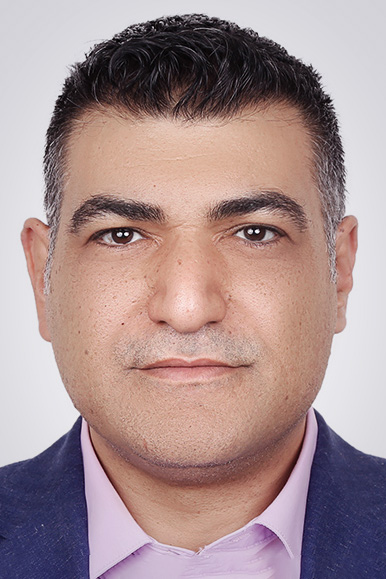

As policymakers search for an IAEA for AI, lessons from ICANN and internet governance loom large, raising questions about multistakeholder legitimacy, mission creep, technical fragmentation and whether AI demands sector-specific regulation rather than grand global architectures. more
 Meltnet envisions a federated internet model led by BRICS nations, combining digital sovereignty with cross-border interoperability. It challenges US-centric governance by proposing a trust-based architecture rooted in shared standards and mutual recognition. more
Meltnet envisions a federated internet model led by BRICS nations, combining digital sovereignty with cross-border interoperability. It challenges US-centric governance by proposing a trust-based architecture rooted in shared standards and mutual recognition. more
A three-decade natural experiment suggests America's centralized regulatory review fostered far greater wealth creation than Europe's precautionary principle, raising stark questions about whether importing EU-style AI rules would undermine US innovation and prosperity. more
 Under ICANN's ICP-2 framework, RIR emergency operations extend beyond technical redundancy to encompass legal relocation, policy divergence and geopolitical risk, exposing tensions between operational resilience and national sovereignty in safeguarding global internet governance. more
Under ICANN's ICP-2 framework, RIR emergency operations extend beyond technical redundancy to encompass legal relocation, policy divergence and geopolitical risk, exposing tensions between operational resilience and national sovereignty in safeguarding global internet governance. more
 A 2026 outlook charts Internet governance between fear and hope, tracking cyber conflict, digital trade and taxation, shrinking rights, and global AI rivalry, while asking whether multistakeholder cooperation can still steer the network toward stability. more
A 2026 outlook charts Internet governance between fear and hope, tracking cyber conflict, digital trade and taxation, shrinking rights, and global AI rivalry, while asking whether multistakeholder cooperation can still steer the network toward stability. more
 Poland thwarted a large-scale cyberattack on its energy grid without disruption, offering a rare case study in critical infrastructure resilience, decentralised energy governance, and the balancing act between openness and digital security. more
Poland thwarted a large-scale cyberattack on its energy grid without disruption, offering a rare case study in critical infrastructure resilience, decentralised energy governance, and the balancing act between openness and digital security. more
 Internet governance is shifting from participatory forums to security-driven mandates. As authority accelerates ahead of legitimacy, technical systems face growing instability and operators absorb the risks of politically motivated control. more
Internet governance is shifting from participatory forums to security-driven mandates. As authority accelerates ahead of legitimacy, technical systems face growing instability and operators absorb the risks of politically motivated control. more
 The ICC's new cyber policy reframes Internet infrastructure as crucial to prosecuting atrocities, prompting DNS operators and network providers to grapple with emerging obligations around evidence, neutrality, and cooperation in international justice. more
The ICC's new cyber policy reframes Internet infrastructure as crucial to prosecuting atrocities, prompting DNS operators and network providers to grapple with emerging obligations around evidence, neutrality, and cooperation in international justice. more
 Outdated policies at Regional Internet Registries hinder the efficient transfer and leasing of IP addresses, driving up internet costs in emerging markets and limiting innovation. A faster, more inclusive governance model is urgently needed. more
Outdated policies at Regional Internet Registries hinder the efficient transfer and leasing of IP addresses, driving up internet costs in emerging markets and limiting innovation. A faster, more inclusive governance model is urgently needed. more
 As ICANN prepares to expand the domain name space, calls grow for a public-law framework to govern the DNS root, ensuring global equity, transparency, and accountability in managing the Internet's core infrastructure. more
As ICANN prepares to expand the domain name space, calls grow for a public-law framework to govern the DNS root, ensuring global equity, transparency, and accountability in managing the Internet's core infrastructure. more
 The future of the Internet Governance Forum (IGF) is an important part of the WSIS+20 review process. But after 20 years, the key question should now be its organizational evolution, more than just how long its mandate should be extended or whether it should be rebranded. The time has come for a constitutional moment for the IGF. A dedicated review process should take place in 2026 around three core questions. more
The future of the Internet Governance Forum (IGF) is an important part of the WSIS+20 review process. But after 20 years, the key question should now be its organizational evolution, more than just how long its mandate should be extended or whether it should be rebranded. The time has come for a constitutional moment for the IGF. A dedicated review process should take place in 2026 around three core questions. more
 The arrangements regarding the composition and organisation of the provision and operation of authoritative root servers are one of the more long-lasting aspects of the public Internet. In the late 1980s, Jon Postel, as the IANA, worked with a small set of interested organisations to provide this service. It was informally arranged, without contracts and without payment of any form. more
The arrangements regarding the composition and organisation of the provision and operation of authoritative root servers are one of the more long-lasting aspects of the public Internet. In the late 1980s, Jon Postel, as the IANA, worked with a small set of interested organisations to provide this service. It was informally arranged, without contracts and without payment of any form. more
 On 29 July 2025, the UN organized a WSIS+20 Informal Stakeholder Consultation at which a number of government and stakeholder representations made three-minute statements. This was in response to the Elements Paper circulated by the WSIS+20 Review's Co-facilitators, an important initial step en route to the zero draft of the text that will be the basis of negotiations and consultations over the next months in advance of the formal WSIS Review in the UN General Assembly in December. more
On 29 July 2025, the UN organized a WSIS+20 Informal Stakeholder Consultation at which a number of government and stakeholder representations made three-minute statements. This was in response to the Elements Paper circulated by the WSIS+20 Review's Co-facilitators, an important initial step en route to the zero draft of the text that will be the basis of negotiations and consultations over the next months in advance of the formal WSIS Review in the UN General Assembly in December. more
 2025 is not a banner year for the status quo. A fashion for deregulation, ignoring processes and questioning whatever was long-established is finding enough adherents that even things which work well are being upended. That's why those looking for leverage to use in hurried dealmaking, or countries with plans to rebalance where digital power lies, may find a handy tool in ICANN. more
2025 is not a banner year for the status quo. A fashion for deregulation, ignoring processes and questioning whatever was long-established is finding enough adherents that even things which work well are being upended. That's why those looking for leverage to use in hurried dealmaking, or countries with plans to rebalance where digital power lies, may find a handy tool in ICANN. more
 The future of the World Summit on the Information Society (WSIS) process will be one of the main topics of the 2025 Internet Governance Forum. Many in the IG community are heavily invested in the renewal of WSIS. They imply that if it is not renewed, there will be major, negative effects on the way we govern the Internet. IGP believes that it is healthy and productive for the community to consider the possibility of ending WSIS. more
The future of the World Summit on the Information Society (WSIS) process will be one of the main topics of the 2025 Internet Governance Forum. Many in the IG community are heavily invested in the renewal of WSIS. They imply that if it is not renewed, there will be major, negative effects on the way we govern the Internet. IGP believes that it is healthy and productive for the community to consider the possibility of ending WSIS. more